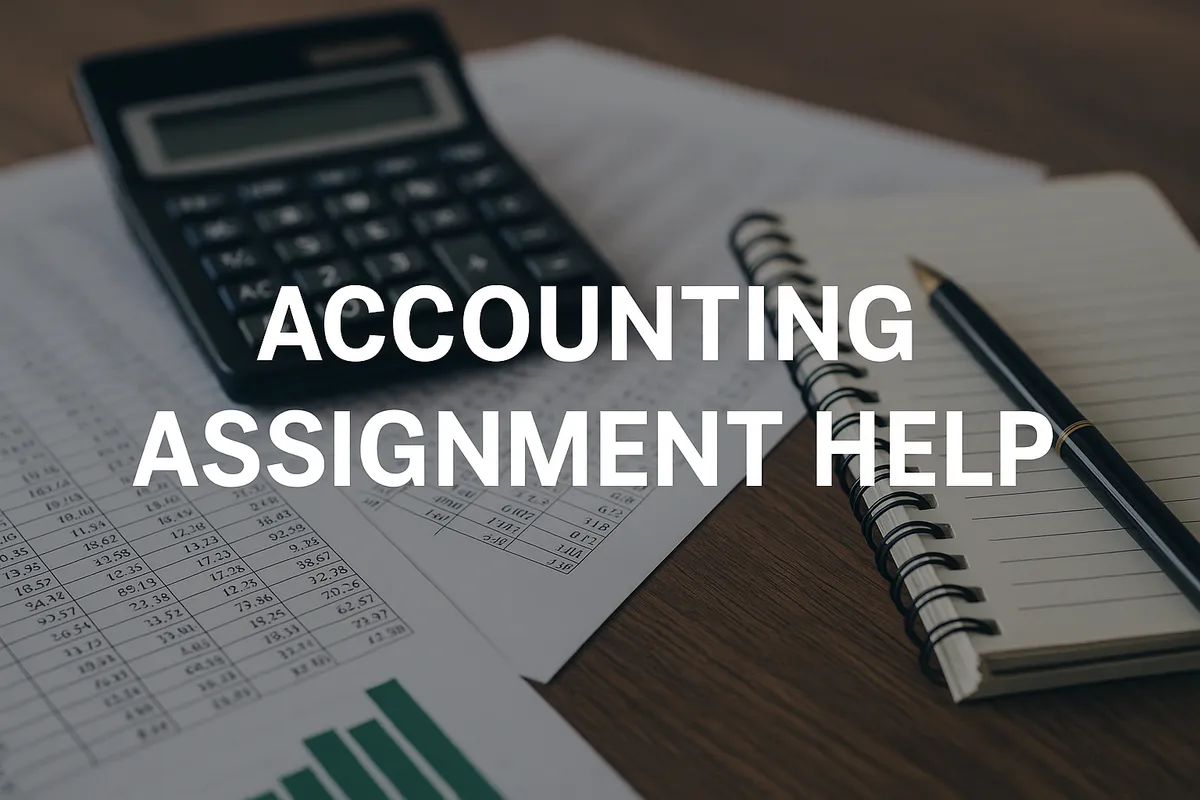How to Solve Complex Accounting Problems: A Step-by-Step Guide for Students

Okay, real talk: when it comes to complex accounting problems, most students feel like they’re staring at an alien language. Numbers, rules, weird terms like “deferred revenue” or “accrued expenses” — it can all get pretty overwhelming. If you’ve ever wished for a cheat code or some kind of accounting assignment help to just make sense of it all, you’re in the right place.
Let me walk you through how to actually tackle these beastly problems without losing your cool or your mind. This isn’t some boring lecture. Think of it like a casual chat with a friend who’s been through the same accounting trenches and come out the other side — a little wiser and less stressed.
Step 1: Chill Out and Break It Down
Before you dive headfirst into crunching numbers, take a breath. The first step to handling complex accounting problems is to slow down and really read the question. Like, twice or even thrice.
Highlight or underline key details — dates, amounts, what exactly they want you to find. Often, the problem looks like a giant mess because it’s all smushed together. But when you slice it into smaller chunks? It suddenly makes way more sense.
If you don’t know what they want, you’re spinning your wheels. So, get super clear on what the final answer should look like.
Step 2: Master the Basics First
Here’s the truth: complex accounting problems are just basic principles dressed up in fancy clothes. If your debit-credit game is weak, or you’re shaky on concepts like accrual accounting or how depreciation works, pause and brush up.
I won’t lie — it’s tempting to jump into the deep end, but trust me, solid basics are your safety net.
Step 3: Get Organized — Both Your Brain and Your Workspace
Messy desk, messy mind, right? Get a clean space, open a fresh spreadsheet or a clean page, and label everything. “Given info,” “What’s asked,” “Assumptions,” and “Calculations.”
Writing things down clears mental clutter and helps you see the path forward. Plus, if you need to go back and check something later, you’ll thank yourself.
Step 4: Use a Framework to Guide You
I like to think of this like cooking. You can’t just throw everything in the pot and hope for the best — you need a recipe. Here’s a simple framework to keep you on track:
- List what you know: All the data points and facts given.
- Define what you need to find: The exact answers or outputs required.
- Apply accounting principles: Figure out which rules or formulas apply here.
- Do the math, step-by-step: No rushing, no skipping.
- Double-check and format your answer: Make sure everything balances and looks neat.
Step 5: Double-Check Like a Pro
Accounting is unforgiving — one tiny slip, and your balance sheet is toast. Always, always check if your numbers add up, if debits equal credits, and if you’ve answered the question fully.
Don’t forget to include units and currency! Believe me, I’ve lost marks because I forgot to put “$” in a few places. Embarrassing, but real.
Step 6: Add Your Analysis
Numbers alone don’t cut it in complex accounting problems. Sometimes you’ll need to explain what the numbers mean. What’s the company’s liquidity situation? Is the profit margin improving or not? Why might expenses have spiked?
Showing you understand why the numbers matter can bump your grade up big time.
Real Talk: Tools and Help Are Your Friends
Whether it’s Excel shortcuts, YouTube tutorials, or trusted accounting assignment help, don’t be shy about using resources. Getting stuck is normal. Getting help is smart.
If you’re struggling, sometimes just talking it through with a tutor or a study buddy can untangle your thinking.
My Own “Accounting Nightmare” Story
In one class, I faced a problem where I had to calculate depreciation with changing salvage values and variable useful lives. I thought I nailed it — but my answer was way off.
I reached out for some accounting assignment help, and the tutor walked me through breaking the problem into smaller bits and carefully applying formulas step by step. The difference was night and day. I finally got it. And guess what? That boosted my confidence for the whole course.
Wrap-Up: You Got This
Complex accounting problems might feel like a mountain now, but with the right approach, they’re just a bunch of small hills waiting to be climbed one step at a time.
Take your time, keep your basics sharp, organize your work, and don’t be afraid to ask for help when you need it. After all, even the best accountants started somewhere.